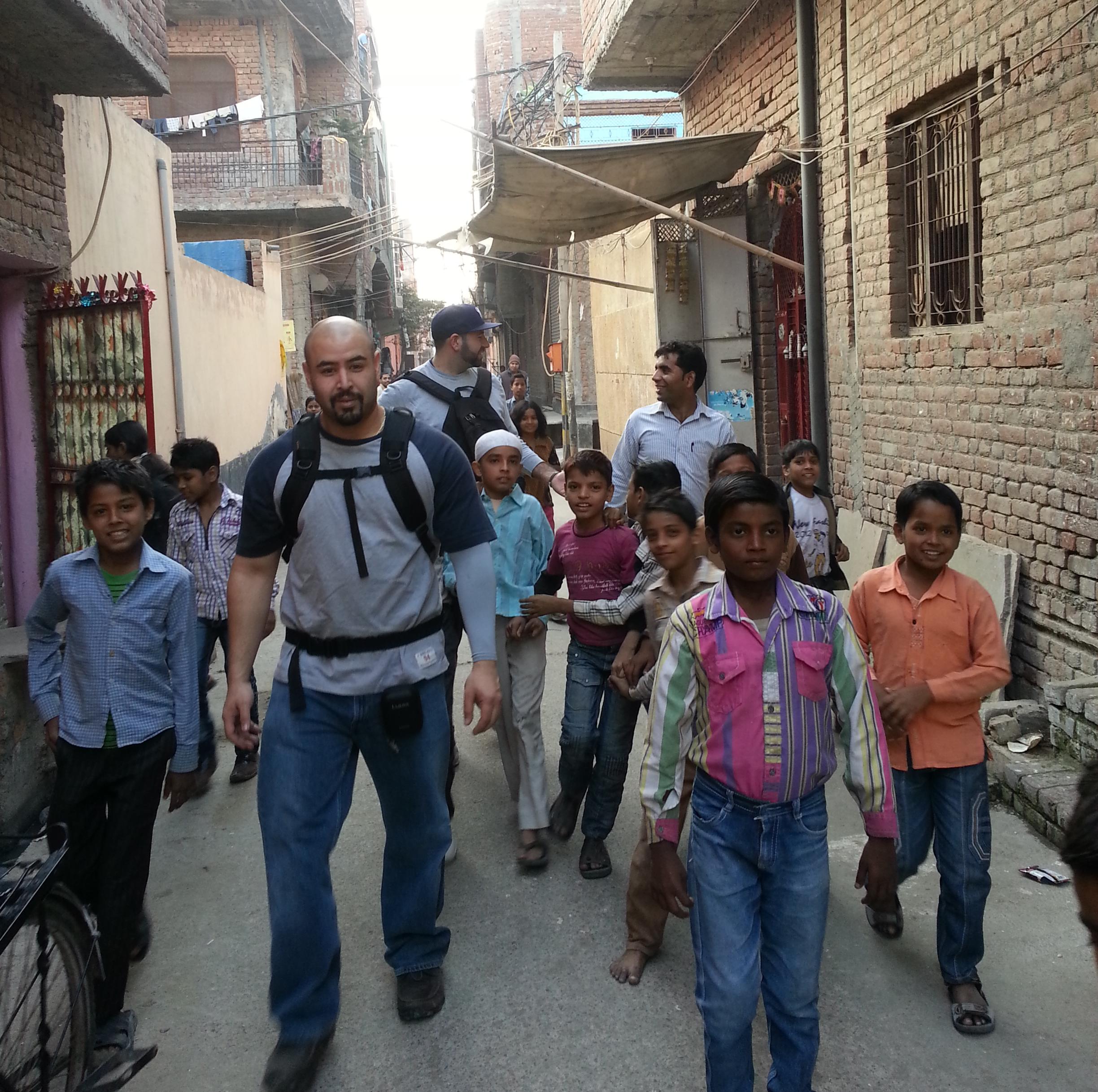Scarves: Healthcare in the Slums of India
Touro College of Pharmacy Students Travel to India to Run Health Camps in Poor Urban Communities

The women who had come to the makeshift “health camps” to see the student pharmacists from Harlem had ongoing pain in their bones. Some were so thin that their gaunt arms would not hold a blood pressure cuff. One man had collected so many medications that he stuffed them into two shopping bags and brought them to the camp to be sorted, identified and ultimately thrown away.
“He had no idea what he was taking, or the expiration dates of his drugs,” said Steven Elrod, a doctor of pharmacy (Pharm.D.) candidate at the Touro College of Pharmacy in Harlem. “He had ten years of medications. Many were expired. At the end he left with one small zip-lock bag.”
Elrod was one of six Touro pharmacy students who recently ventured to the slums of India. The group, which also included students Glenn Morataya, Ravi Shah, Jillian Brown, Jessica Cate and Danny Tea, worked under the supervision of Audrey Jacobson, M.D., MPH, professor and director of public health education, practice and research; Ronnie Moore, Pharm.D., senior director of practice experience; and Dipan Ray, Ph.D., director of practice experience.
They spent four weeks in the poor neighborhoods of New Delhi and Agra, where most of the residents lack access to primary health care. They screened residents for hypertension, diabetes and pulmonary impairment. Residents needing treatment were referred for medical services, and attempts were made to counsel them on how to improve their health, prevent disease and use their medications properly.
In India, the Touro group collaborated with the Urban Health Resource Center (UHRC), a non-profit organization in New Delhi that works to improve health of the urban poor living in slums and settlements. The Touro students screened about 350 patients (more than twice as many as anticipated) and in addition to the counseling, created a database of proper medications that they left behind for UHRC to help residents obtain appropriate medications.
The students showed unflagging dedication, working 10 to 14-hour days under physically trying conditions, often going without lunch and working themselves weary. Sanitation was poor and the air heavily polluted. Supplies ran short and the hurdles were many, including cultural differences and disparities, and language barriers.
The students recall the many challenges. Patients were seen in living rooms, where families rearranged their furniture to accommodate the screenings, or small rooms resembling college dormitories. The conditions – short on space and privacy, coupled with language barriers - were not ideal for patient interviews, blood pressure readings and counseling. Translators and body language were called into play. Advice given was not always followed.
Sometimes the students had to try to solve problems quickly as best they could, when there were no obvious solutions. For example, women with decreased lung function reported they lived in households with husbands or others who smoked; the students could only advise them to try to speak with family members about smoking away from the house. Others rode motorcycles in New Delhi’s highly-polluted streets. “We could only tell them to wear scarves and keep their faces covered outside,” recalled Tea.
But they learned to work together as a team and ended up acquiring new skills and knowledge that will last a lifetime.
“The whole experience embodied the potential for what pharmacists can be in the realm of public health,” said Cate, whose classmate, Morataya, added, “This is where I learned public health, and on a global level, too.”
Brown, who initially wanted to go home after the first day, stuck it out and in the end concluded it was one of the best experiences of her life. “I saw how people lived and how they didn’t have access to what we have. I saw the opportunity to educate patients and improve their quality of life.”

